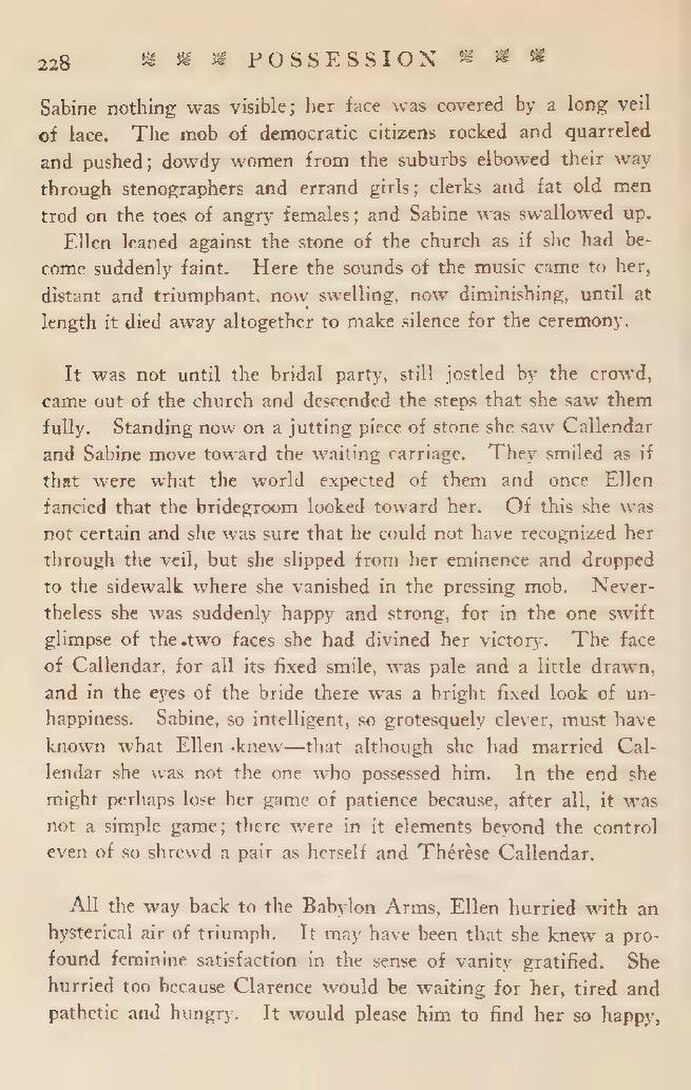Sabine nothing was visible; her face was covered by a long veil of lace. The mob of democratic citizens rocked and quarreled and pushed; dowdy women from the suburbs elbowed their way through stenographers and errand girls; clerks and fat old men trod on the toes of angry females; and Sabine was swallowed up.
Ellen leaned against the stone of the church as if she had become suddenly faint. Here the sounds of the music came to her, distant and triumphant, now swelling, now diminishing, until at length it died away altogether to make silence for the ceremony.
It was not until the bridal party, still jostled by the crowd, came out of the church and descended the steps that she saw them fully. Standing now on a jutting piece of stone she saw Callendar and Sabine move toward the waiting carriage. They smiled as if that were what the world expected of them and once Ellen fancied that the bridegroom looked toward her. Of this she was not certain and she was sure that he could not have recognized her through the veil, but she slipped from her eminence and dropped to the sidewalk where she vanished in the pressing mob. Nevertheless she was suddenly happy and strong, for in the one swift glimpse of the two faces she had divined her victory. The face of Callendar, for all its fixed smile, was pale and a little drawn, and in the eyes of the bride there was a bright fixed look of unhappiness. Sabine, so intelligent, so grotesquely clever, must have known what Ellen knew—that although she had married Callendar she was not the one who possessed him. In the end she might perhaps lose her game of patience because, after all, it was not a simple game; there were in it elements beyond the control even of so shrewd a pair as herself and Thérèse Callendar.
All the way back to the Babylon Arms, Ellen hurried with an hysterical air of triumph. It may have been that she knew a profound feminine satisfaction in the sense of vanity gratified. She hurried too because Clarence would be waiting for her, tired and pathetic and hungry. It would please him to find her so happy,
